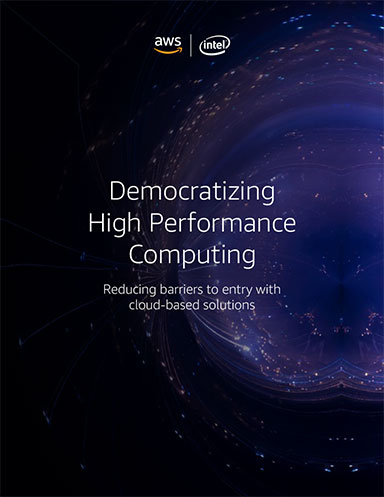AMD Instinct Offers Exascale-Class Technology for HPC and AI Applications
Powered by AMD CDNA 2 architecture and AMD ROCm 5, new AMD Instinct MI210 GPUs help address demand for compute-accelerated data center workloads, AMD reports.

The AMD Instinct and ROCm ecosystem is offering exascale-class technology to a broad base of HPC and AI customers. Image courtesy of AMD.
Latest News
March 29, 2022
AMD makes available the AMD Instinct ecosystem with expanded system support from partners including ASUS, Dell Technologies, Gigabyte, HPE, Lenovo and Supermicro, the new AMD Instinct MI210 accelerator and capabilities of ROCm 5 software. The AMD Instinct and ROCm ecosystem is offering exascale-class technology to a broad base of HPC and AI customers, addressing the demand for compute-accelerated data center workloads and reducing the time to insights and discovery, AMD reports.
“With twice the platforms available compared to our previous generation accelerators, growing customer adoption across HPC and AI applications, and new support from commercial ISVs in key workloads, we’re continuing to drive adoption of the AMD Instinct MI200 accelerators and ROCm 5 software ecosystem,” says Brad McCredie, corporate vice president, Data Center GPU and Accelerated Processing, AMD. “Now with the availability of the AMD Instinct MI210 accelerator to the MI200 family, our customers can choose the accelerator that works best for their workloads, whether they need leading-edge accelerated processing for large scale HPC and AI workloads, or if they want access to exascale-class technology in a commercial format.”
Powering The Future of HPC and AI
The AMD Instinct MI200 series accelerators are designed to power discoveries in exascale systems, enabling researchers, scientists and engineers to tackle great challenges, according to AMD. The AMD Instinct MI210 accelerators specifically enable exascale-class technologies for customers who need high-level HPC and AI performance in a PCIe format, the company reports.
Driving the ROCm Adoption
An open software platform that allows researchers, scientists and engineers to tap the power of AMD Instinct accelerators to drive scientific discoveries, the AMD ROCm platform is built on the foundation of numerous applications and libraries powering top HPC and AI applications.
With ROCm 5, AMD extends its software platform by adding new hardware support for the AMD Instinct MI200 series accelerators and the AMD Radeon PRO W6800 professional graphics card, plus Red Hat Enterprise Linux 8.5 support, increasing accessibility of ROCm for developers and enabling performance across key workloads, AMD reports.
Through the AMD Infinity Hub, the central location for open-source applications that are ported and optimized on AMD GPUs, end-users can find, download and install containerized HPC apps and ML frameworks. AMD Infinity Hub application containers are designed to ease the issue of obtaining and installing software releases while allowing users to learn based on shared experiences and problem-solving opportunities, AMD notes.
Expanding Partner and Customer Ecosystem
As more purpose-built applications are optimized to work with ROCm and AMD Instinct accelerators, AMD continues to grow its software ecosystem with the addition of commercial ISVs, including Ansys, Cascade Technologies, and TempoQuest. These updates are on top of existing application support in ROCm which includes HPC, AI and Machine Learning applications, AMBER, Chroma, CP2K, GRID, GROMACs, LAAMPS, MILC, Mini-HAAC, NAMD, NAMD 3.0, ONNX-RT, OpenMM, PyTorch, RELION, SPECFEM3D Cartesian, SPECFEM3D Globe, and TensorFlow.
AMD is also enabling partners like ASUS, Dell Technologies, Gigabyte, HPE, Lenovo, Supermicro, and System Integrators including Colfax, Exxact, KOI Computers, Nor-Tech, Penguin and Symmetric to offer differentiated solutions to address computing challenges.
Enabling Access for Customers and Partners
The AMD Accelerator Cloud offers customers an environment to remotely access and evaluate AMD Instinct accelerators and AMD ROCm software. Whether it’s porting legacy code, benchmarking an application or testing multi-GPU or multi-node scaling, the AMD Accelerator Cloud gives prospective customers and partners quick and easy access to the latest GPUs and software, according to AMD.
Sources: Press materials received from the company and additional information gleaned from the company’s website.
More AMD Coverage

Subscribe to our FREE magazine, FREE email newsletters or both!
Latest News
About the Author
DE’s editors contribute news and new product announcements to Digital Engineering.
Press releases may be sent to them via DE-Editors@digitaleng.news.







